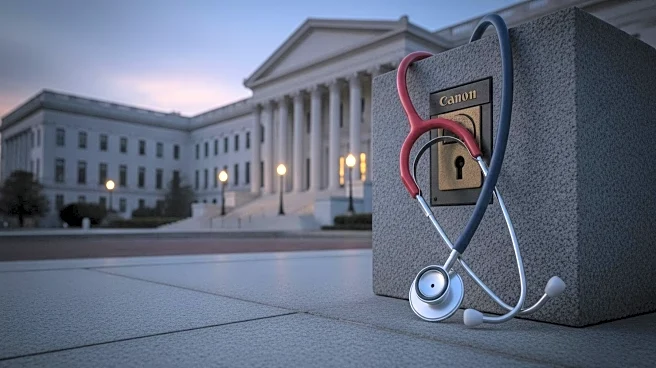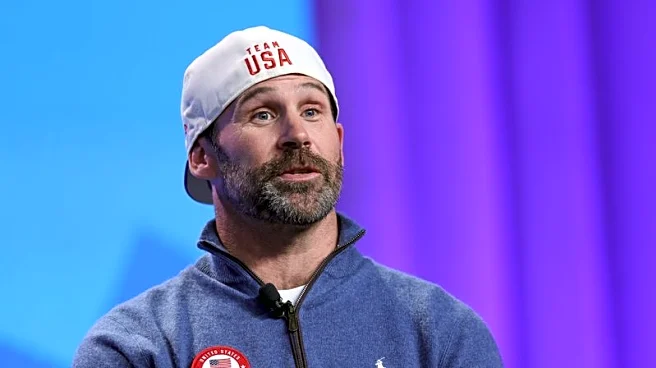What's Happening?
The U.S. government shutdown has entered its sixth day, with the Senate rejecting both Republican and Democratic proposals to reopen the government. President Trump has claimed that negotiations are underway regarding health care, specifically the extension of expiring Obamacare funds, which is a key Democratic demand. However, Senate Minority Leader Chuck Schumer has refuted Trump's claim, stating that no such negotiations are occurring. The shutdown has resulted in a standoff between the two parties, with Republicans insisting on reopening the government before discussing health care funding. The situation is further complicated by Speaker Mike Johnson's decision to cancel votes for the week, citing the House's previous passage of a funding bill.
Why It's Important?
The continuation of the government shutdown has significant implications for federal operations and the broader political landscape. The lack of progress in negotiations highlights the deep partisan divide in Congress, with both sides unwilling to compromise on key issues. The potential expiration of Obamacare funds poses a risk of increased health insurance premiums, affecting millions of Americans. The shutdown also impacts public perception, with polls indicating that the White House and Republicans are receiving more blame than Democrats. The situation underscores the challenges of navigating complex policy issues in a polarized environment, where political maneuvering often takes precedence over practical solutions.
What's Next?
The resolution of the shutdown remains uncertain, with both parties entrenched in their positions. The potential for negotiations on health care funding could offer a path forward, but only if the government is reopened. The pressure on lawmakers to find a solution will likely increase as the shutdown's impact on federal services and employees grows. The situation may evolve with further political developments, including potential shifts in public opinion or strategic moves by key stakeholders. The outcome will depend on the willingness of both parties to engage in meaningful dialogue and address the underlying issues driving the impasse.











